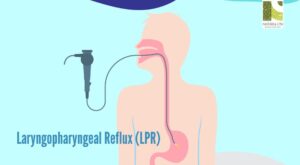Grandpa’s Clinic: Akathisia Explained — When the Body Just Can’t Sit Still

Episode 3: “When the Body Can’t Stay Still — Understanding Akathisia”
Scene: Sunday morning, Arjun is pacing restlessly in the living room. Dr. Iyer, reading the newspaper, notices him fidgeting.
Dr. Iyer: Arjun, you’re wearing the floor tiles thin! Why are you pacing so much?
Arjun (sighing): Grandpa, I feel so restless. It’s like I have to keep moving. My legs won’t stay still. It happened last night too, couldn’t even sit through a movie.
Dr. Iyer: Hmm, that reminds me of a condition called Akathisia. You might not have it clinically, but what you describe sounds familiar.
What is Akathisia?
Arjun: Akathisia? Sounds Greek to me.
Dr. Iyer (laughing): That’s because it is! “Akathisia” comes from the Greek word meaning “inability to sit still.” It’s a medical condition where people experience:
✔️ Extreme restlessness
✔️ Constant urge to move their legs or pace
✔️ Feeling uncomfortable or agitated when sitting still
It often feels like an inner restlessness that you just can’t control.
Arjun: So why does this happen? Is it stress?
Dr. Iyer: Stress can cause restlessness, but true Akathisia is often a side effect of certain medications, especially:
✅ Antipsychotic drugs
✅ Antidepressants
✅ Some medications for nausea or vertigo
These affect the brain’s dopamine pathways, which regulate movement and mood.
Arjun: You mean medicines given for mental health can cause this?
Dr. Iyer: Yes, sometimes. That’s why doctors closely monitor new prescriptions, especially in psychiatry.
Dr. Iyer: People describe it as:
- An uncontrollable urge to pace or move
- Inner tension or discomfort
- Inability to relax, even when tired
Severe Akathisia can even increase anxiety or depressive feelings. That’s why recognizing and managing it early is crucial.
Arjun: So what do doctors do about it?
Dr. Iyer: Treatment depends on the cause:
✔️ Adjusting the dose or switching medications
✔️ Adding medications to reduce symptoms (like beta-blockers or benzodiazepines)
✔️ Non-medical approaches like mindfulness, gentle stretching, or walking breaks
Important: Never stop or change prescribed medication without consulting your doctor — it can make things worse.
Arjun: So what I have is just normal fidgeting?
Dr. Iyer: Likely. Mild restlessness happens with stress, caffeine, or lack of sleep. But true Akathisia is persistent and distressing. If someone shows severe signs, especially after starting new medication, they must consult their doctor.
Arjun (grinning): Thanks again, Grandpa. Who needs Google when I have Grandpa’s Clinic?
Dr. Iyer (chuckling): Well, Google may give you data — but I give you wisdom and filter out the fluff!
Arjun: Fair point. So what’s next on your medical mystery list?
Dr. Iyer: Ah, next time I’ll tell you about a strange condition called Diplopia — when the world suddenly doubles, and everything you see splits into two.
Arjun (eyes widening): You mean like seeing double? Sounds trippy — and terrifying.
Dr. Iyer: It can be. But don’t worry, we’ll untangle it over tea, just like always.
Stay tuned for Episode 4 of Grandpa’s Clinic: “Seeing Double? Understanding Diplopia”





